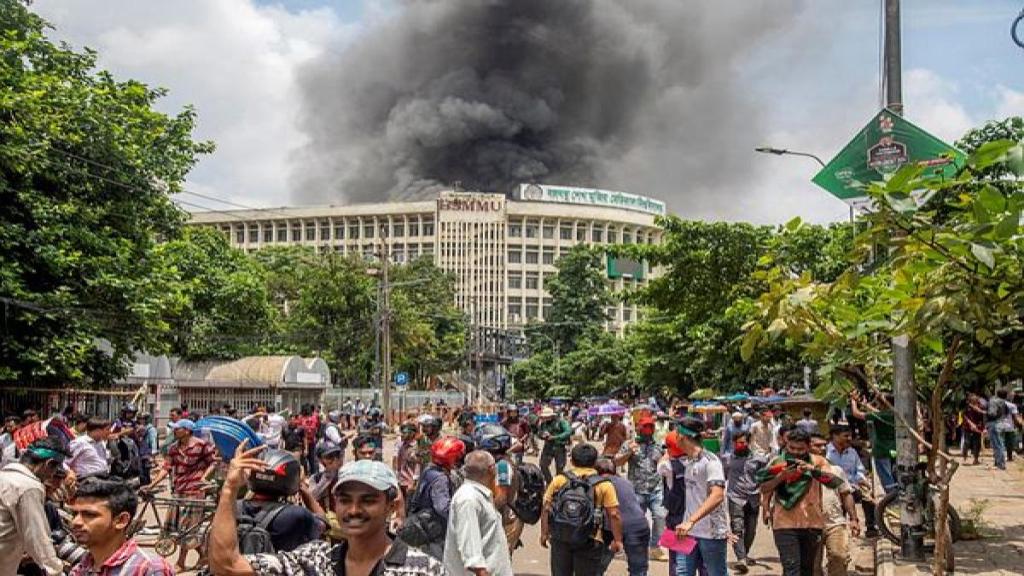The Bangladesh government ordered a complete internet shutdown on Monday as protests continued to spread, with demonstrators calling on the general public to join a “Long March to Dhaka” following violent clashes that left nearly 100 people dead.
The clashes erupted on Sunday as supporters of Prime Minister Sheikh Hasina’s ruling party clashed with protesters demanding her resignation in various parts of the country. During a non-cooperation program organised by Students Against Discrimination, who were calling for Hasina’s resignation over a job quota system faced opposition from activists of the ruling Awami League, Chhatra League, and Jubo League.
At least 98 people, including 14 policemen, were killed in clashes on Sunday, reported the Bengali-language newspaper Prothom Alo. The violence prompted authorities to cut off mobile internet and impose an indefinite nationwide curfew. The Anti-Discrimination Student Movement has rescheduled their “Long March to Dhaka” to Monday, a day earlier than initially planned. This decision was made during an urgent meeting amid growing concerns in the country, Asif Mahmud, a coordinator of the movement, said in a press release issued on Sunday night.
The Awami League’s planned mourning procession on Monday has been cancelled due to the curfew. There was thin traffic in various areas of the capital on Monday morning. Some students from different educational institutions gathered at Dhaka Central Shaheed Minar before and after 10 am to participate in the ‘March to Dhaka’ program, prompting police to fire tear gas to disperse them.
‘Three- day general holiday declared’
A three-day general holiday has been declared in the country starting Monday. India has advised its nationals to avoid traveling to Bangladesh until further notice due to the ongoing violence. Meanwhile, the University Teachers’ Network has proposed forming an interim government immediately, consisting of representatives from various sectors and professions.
According to the proposal, Prime Minister Hasina would need to hand over power to this interim government. The teachers’ network presented their proposal at a press conference titled ‘Proposal of an Outline for Transition to a Democratic Bangladesh Free of Discrimination’ at the Sagar-Runi Auditorium of Dhaka Reporters’ Unity on Sunday.
What led to curfew in Bangladesh?
The clashes on Sunday erupted days after over 200 people were killed in violent confrontations between the police and mostly student protesters demanding an end to the controversial quota system that reserved 30% of government jobs for relatives of veterans who fought in Bangladesh’s War of Independence in 1971. Since then, more than 11,000 people have been arrested. The situation led to authorities to enforce a curfew in major cities and small towns across Bangladesh from 6 PM Sunday for an indefinite period, mobilizing troops, paramilitary border guards BGB, and the elite anti-crime Rapid Action Battalion alongside police.
The government ordered the shutdown of Meta platforms Facebook, Messenger, WhatsApp, and Instagram, as well as 4G mobile internet services. On Saturday, Prime Minister Hasina offered to sit for talks with the coordinators of the movement, but they rejected her proposal. Government leaders earlier claimed that the “peaceful campaign” was hijacked by fundamentalist Jamaat-e-Islami and their student front Islami Chhatra Shibir, backed by ex-premier Khaleda Zia’s BNP.


